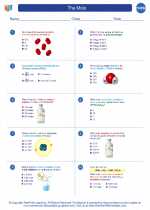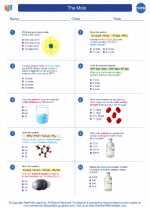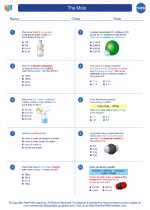Pharmacology
Pharmacology is the branch of medicine and biology concerned with the study of drug action. It involves examining the interactions between chemical substances and living organisms, with a focus on how drugs can be used to diagnose, treat, and prevent disease.
Key Concepts in Pharmacology
- Drug Classification: Drugs can be classified based on their chemical structure, mechanism of action, therapeutic use, and potential for abuse. Understanding these classifications is essential for prescribing and administering medications.
- Pharmacokinetics: This area of study focuses on how drugs are absorbed, distributed, metabolized, and excreted by the body. Factors such as bioavailability, half-life, and drug interactions are important considerations.
- Pharmacodynamics: This field deals with the effects of drugs on the body and the mechanisms of drug action at the molecular, cellular, and systemic levels.
- Drug Metabolism and Elimination: Understanding how drugs are metabolized in the body, particularly in the liver, and how they are eliminated through the kidneys or other routes is crucial for determining dosing regimens and potential drug interactions.
- Therapeutic Drug Monitoring: Some drugs require monitoring of blood levels to ensure therapeutic efficacy while minimizing toxic effects. Therapeutic drug monitoring involves measuring drug concentrations in the blood and adjusting dosages accordingly.
- Adverse Drug Reactions: Pharmacology also encompasses the study of adverse drug reactions, including allergic reactions, side effects, and toxicities. Identifying and managing these reactions is integral to patient safety.
Study Tips for Pharmacology
Here are some tips to help you excel in your pharmacology studies:
- Understand Drug Classifications: Focus on learning the different drug classes, their mechanisms of action, and therapeutic uses. Create charts or flashcards to aid in memorization.
- Master Pharmacokinetics and Pharmacodynamics: Pay close attention to the absorption, distribution, metabolism, and elimination of drugs, as well as their effects on the body. Practice solving problems related to drug dosing and kinetics.
- Stay Updated on New Drugs: Keep abreast of new drug approvals, indications, and safety warnings. Understanding the latest developments in pharmacology is important for clinical practice.
- Utilize Resources: Take advantage of textbooks, online resources, and educational videos to reinforce your understanding of pharmacological concepts. Participate in study groups or discussions with peers to gain different perspectives.
- Practice Critical Thinking: Develop your critical thinking skills by analyzing case studies and clinical scenarios. Consider the potential drug interactions, adverse effects, and individual patient factors that may influence drug therapy.
- Seek Clinical Exposure: If possible, gain practical experience in a clinical setting to observe the application of pharmacological principles in patient care. This can provide valuable context for your studies.
Conclusion
Pharmacology is a complex and multifaceted discipline that plays a crucial role in modern healthcare. By mastering the fundamental principles of pharmacology and applying them to clinical scenarios, you can become proficient in the safe and effective use of medications to improve patient outcomes.
.◂Chemistry Worksheets and Study Guides High School. The Mole
The resources above cover the following skills:
Chemistry II
Reactions
Use mathematical representations to analyze the proportion and quantity of particles in solution.
Equilibrium
Analyze and interpret data to explain the change in concentration of products and reactants, and the stable state achieved under reversible conditions.



